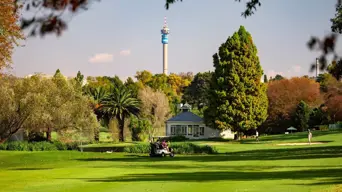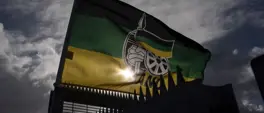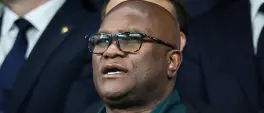‘Apartheid inheritance’ COJ moves to renegotiate R2 annual rent with prestigious Killarney Country Club
Thabiso Goba
1 August 2025 | 7:20Despite the low rent, the club said it has provided value for money to the city and the deal has been “mutually beneficial” for both entities.

The Killarney Country Club. Picture: Facebook/KillarneyCountryClubSA
Since 1970, the prestigious Killarney Country Club (KCC) has been paying R2 a year in rent to the City of Johannesburg.
The Johannesburg council has kicked off a process that will see it re-negotiate terms between it and the club or sell the land it built on altogether.
Despite the low rent, the club said it has provided value for money to the city and the deal has been “mutually beneficial” for both entities.
Located in the leafy Johannesburg suburb of Houghton, the KCC is built on 111,6 hectares of land owned by the city.
Its facilities include an 18-hole golf course, squash and tennis courts, bowling greens and a restaurant.
History of Killarney Country Club
The KCC was established in 1903 as the Transvaal Automobile Club. In 1929, it transitioned to a golf club with the introduction of a golf course.
In 1970, the City of Council of Johannesburg (as it was formally known at the time) expropriated the land the course was on to build the M1 Highway.
“It was agreed that KCC would relocate to five nearby erven which the COJ purchased,” one court document reads.
The club moved to Houghton, near the Highway where it would enter into a long-term lease with the city at R2 per annum in rental premiums.
The initial 50-year lease was due to expire on the 31st of July 2020 however in 1992, it was extended to 2040 (this is currently subject to a court challenge), at the same rental rate of R2 per annum.
In 2005, the name was officially changed to the Killarney Country Club.
Joburg council KCC motion
On Thursday, a motion was tabled before the Johannesburg council which seeks to open a public participation process on the future of the club.
“The said property (KCC) is a non-core capital asset, and it is therefore recommended that it be sold or leased on a long-term basis,” the motion reads.
According to the document, the city estimates the property value to exceed R50-million meaning a public participation process must be conducted before any decision is made on it, in line with Section 34 and 35 of the Municipal Asset Transfer Regulations.
It said the market value of the KCC will be determined by an independent valuator.
Following the public participation process, the CEO of the Joburg Property Company (a municipal-owned entity which manages all the city’s properties) will submit a report to council within 60 days.
“Advising whether the capital asset is needed to provide a minimum level of basic municipal services, as well as the fair market value of the asset,” council documents read.
The CEO’s report must also consider the economic and community value that will be received if the KCC is sold.
“Apartheid inheritance” Johannesburg Councillors chip in
Then document presented to council on Thursday says in August 2011, the city of Johannesburg resolved to lease the property at R1000 a month for a period of about 10 years, with an 8% increase a year (Note: The KCC told EWN it knows nothing about this and still pays a rental of R2 a year).
Nomoya Mnisi, MMC for Economic Development and ANC councillor, said the city will be guided by the outcomes from the public participation process on decide whether the land KCC is built on will be sold or the lease will be continued.
“There is a lease currently running in that property, it is ending in 2040 however it should be noted the lease is not market related. It means whatever amount the tenants (KCC) are paying there is not in accordance with the market value,” she said.
Mnisi said the rental terms between the city and KCC are an “inheritance of apartheid.”
Matthew Cook from the Good Party was also in support of the public participation process.
“You cant even find a backroom in Soweto or Orange Farm for R2000 per month, how is the city currently leasing a 111-hectares of prime land, well located for under R2000 per year,” he said.
Cook went further saying the land, where the country club currently resides, must be utilised for public use like low-cost housing, mixed use zones and sports centres.
“Things like that where the public in those communities can really benefit from it rather than the elite few who are able to play golf,” he said.
“I don’t think there is a shortage of golf clubs in Johannesburg, Parkview (golf club) is just up the road (from KCC) and that one is not up for negotiation at the moment so within a five-minute drive you have got another golf course, there is plenty of space for golfers to go to.”
The Democratic Alliance voted against the motion. As its councillor, Alex Christians rose up to speak, there was heckles of “apartheid beneficiary” from some other councillors in the chamber.
“It is vague and does not provide sufficient information for us to make an informed decision,” said Christians.
“We are not against public participation but the process they want to follow in terms of how the public will then respond to what is in the details of that report. Also to note that 2011 was not during apartheid.”
The motion was adopted by a majority of councillors.
Killarney Country Club responds
“I think at face value if you see a club paying R2, you’ll be like ‘oh that’s ridiculous how can that be’ but ultimately the history of it (the land) was sold and leased back for the benefit of the city and its residents on a nominal basis because fulfilled the managing function which the city clearly can’t fulfil themselves,” said Darryn Faulds, President of the KCC.
Referring to that 1970 deal, Faulds said there was an agreement the land would be leased back to the country club and it would have to manage and maintain it at its own risk.
He also denied accusations that KCC is an “exclusive” club, saying all its facilities are open public.
Like all country clubs, Faulds said the KCC offers a membership and services which they generate revenue from.
However, he said the R2 annual rent has not spared it from financial difficulties facing most sports clubs across the country, with the club last recording a profit about 15-years ago.
He said the land is difficult and expensive to maintain with most of the revenue being going back to covering overhead costs.
“It’s a very, very tough place just to break-even nevermind make a little bit more,” he said.
Faulds said the club has done a good job in maintaining the land, especially considering a large portion of it is a biodiverse wetland.
“90% of that area in undevelopmental (sic) because it’s just effectively a wetland that floods where you cannot have residential properties,” he said.
Faulds said if the land were to be sold, the next best use of it would be a park which the city would have to maintain at its own cost and resources.
“We have all seen unfortunately how the parks get managed in the city,” he said.
“Any development on that property (KCC), upgrades or improvements or otherwise is for the benefit of the city because ultimately it’s their asset that is going to have a value or not.”
Faulds also argued the country club has indirectly contributed to the investments in Houghton and its surrounding areas.
“It’s not overgrown there isn’t a mass vagrants or mass camps on there or anything that we see with other areas where maintenance isn’t upkept so there is a lot of commercial buildings and new residential buildings being built,” he said.
In addition, the KCC also runs advertising boards on the land, the proceeds of which go to the Joburg Property Company (JPC).
With council passing the motion for a public consultation, Faulds said he is hoping those that will participate have the entire picture and context of the KCC.
He said the KCC is keeping an open mind throughout this process and has re-affirmed its long-standing position to renegotiate terms that will be suitable for both the club and the city.
“We happy to do another lease basis on terms that are more favourable to you (JPC) commercially and this could be a higher rental per-month,” he said.
“We could also work with the advertising companies to commission more sites and run that process for the JPC, giving them the profits of that.”
Get the whole picture 💡
Take a look at the topic timeline for all related articles.
Trending News
More in Local

5 October 2025 17:15
Trump administration declares US cities war zones

5 October 2025 17:00
Stellenbosch University investigating if Rooibos extract is safe to use alongside existing cancer treatment therapies

5 October 2025 15:50
Rise Mzansi, Bosa, and the Good Party say they stand a better chance at the local polls together











